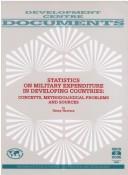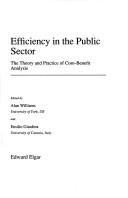| Listing 1 - 4 of 4 |
Sort by
|
Book
ISBN: 9781625345943 1625345941 9781625345950 162534595X Year: 2021 Publisher: Amherst University of Massachusetts Press
Abstract | Keywords | Export | Availability | Bookmark
 Loading...
Loading...Choose an application
- Reference Manager
- EndNote
- RefWorks (Direct export to RefWorks)
"During the Cold War, political tensions associated with the division of Germany came to influence the world of competitive sport. In the 1950s, West Germany and its NATO allies refused to recognize the communist East German state and barred its national teams from sporting competitions. The construction of the Berlin Wall in 1961 further exacerbated these pressures, with East German teams denied travel to several world championships. These tensions would only intensify in the run-up to the 1968 Olympics. In Bidding for the 1968 Olympic Games, Heather L. Dichter considers how NATO and its member states used sport as a diplomatic arena during the height of the Cold War, and how international sport responded to political interference. Drawing on archival materials from NATO, foreign ministries, domestic and international sport functionaries, and newspapers, Dichter examines controversies surrounding the 1968 Summer and Winter Olympic Games, particularly the bidding process between countries to host the events. As she demonstrates, during the Cold War sport and politics became so intertwined that they had the power to fundamentally transform each other"--
Olympic host city selection --- Olympics --- Sports and state --- Cold War --- World politics --- Political aspects --- Economic aspects --- History --- Influence --- International Olympic Committee. --- North Atlantic Treaty Organization --- Influence. --- Olympic Games --- Olympic Games. --- Coexistence (World politics) --- Peaceful coexistence --- Sports --- Sports policy --- State and sports --- Bids to host the Olympics --- Candidate cities to host the Olympics --- Host city selection for the Olympics --- Location of the Olympics --- Selection of the host city for the Olympics --- Hosting of sporting events --- Government policy --- Host city selection --- Location --- Planning --- North Atlantic treaty organisation --- NAVO --- OTAN --- CIO --- Comité international olympique --- Comité Olímpico Internacional --- Mezinárodní olympijský výbor --- MOV --- IOC --- Internationales Olympisches Komitee --- IOK --- COI --- C.I.O. --- M.O.V. --- I.O.C --- I.O.K --- MOK --- M.O.K. --- Međunarodni olimpijski komitet --- Mezhdunarodnyĭ olimpiĭskiĭ komitet --- Comitè Internacional Olímpic --- Olympic Games, --- OLYMPICS--POLITICAL ASPECTS --- NATO --- SPORTS AND STATE --- OLYMPIC GAMES (19TH : 1968 : MEXICO CITY, MEXICO) --- International Olympic Committee --- Internationaal Olympisch Comité

ISBN: 9264142304 Year: 1994 Publisher: Paris OECD
Abstract | Keywords | Export | Availability | Bookmark
 Loading...
Loading...Choose an application
- Reference Manager
- EndNote
- RefWorks (Direct export to RefWorks)
311.1 --- 355.014 <1-772> --- 336.532 --- 355 --- Grondbegrippen van de statistiek --- Bewapening--Onontwikkelde, onderontwikkelde gebieden --- Procedures for evaluation and selection of public investments --- Defensie. Krijgskunst. Landsverdediging. Strijdkrachten. Krijgskunde --- Developing Countries --- Emerging nations --- Fourth World --- Global South --- LDC's --- Least developed countries --- Less developed countries --- Newly industrialized countries --- Newly industrializing countries --- NICs (Newly industrialized countries) --- Third World --- Underdeveloped areas --- Underdeveloped countries --- Armed forces --- -Appropriations and expenditures. --- 355Grondbegrippen van de statistiek --- Defensie. Krijgskunst. Landsverdediging. Strijdkrachten. KrijgskundeDeveloping Countries --- Underdeveloped countriesArmed forces --- 355 Defensie. Krijgskunst. Landsverdediging. Strijdkrachten. Krijgskunde --- 336.532 Procedures for evaluation and selection of public investments --- 355.014 <1-772> Bewapening--Onontwikkelde, onderontwikkelde gebieden --- 311.1 Grondbegrippen van de statistiek --- Developing countries --- Appropriations and expenditures.

ISBN: 1852788127 9781852788124 Year: 1993 Publisher: Aldershot Elgar
Abstract | Keywords | Export | Availability | Bookmark
 Loading...
Loading...Choose an application
- Reference Manager
- EndNote
- RefWorks (Direct export to RefWorks)
Expenditures, Public --- Government spending policy. --- Cost effectiveness. --- Government spending policy --- Cost effectiveness --- rentabilite --- 336.027 --- 336.026 --- rentabiliteit --- Overheidsconsumptie. --- Uitgaven voor openbare werken. --- Government spending policyProcedures for evaluation and selection of public investments --- analyse couts benefices --- secteur public --- 339.312.7 --- 350.0 --- AA / International- internationaal --- 336.1 --- 336.532 --- 657.47 --- Public spending policy --- Spending policy, Government --- Economic policy --- Finance, Public --- Full employment policies --- Unfunded mandates --- 336.1 Public finance, government finance in general --- Public finance, government finance in general --- 657.47 Costing. Cost accounting --- Costing. Cost accounting --- 336.532 Procedures for evaluation and selection of public investments --- Procedures for evaluation and selection of public investments --- Appropriations and expenditures --- Government appropriations --- Government expenditures --- Government spending --- Public expenditures --- Public spending --- Spending, Government --- Public administration --- kosten batenanalyse --- openbare sector --- Uitgaven voor openbare werken --- Overheidsconsumptie --- Kosten en rentabiliteit van de investeringen --- Organisatie van het openbaar bestuur: algemeenheden --- Government policy --- Public economics --- Social costs. Social benefits --- Dépenses publiques --- Coût-efficacité --- Politique gouvernementale --- Économie politique --- Finances --- Expenditures, Public - Cost effectiveness --- Couts-benefices --- Etat --- Investissement --- Santé --- Transport
Book
ISBN: 9780691159386 0691170878 9780691170879 0691159386 1306168228 1400848679 Year: 2014 Publisher: Princeton, NJ : Princeton University Press,
Abstract | Keywords | Export | Availability | Bookmark
 Loading...
Loading...Choose an application
- Reference Manager
- EndNote
- RefWorks (Direct export to RefWorks)
Modern warfare is almost always multilateral to one degree or another, requiring countries to cooperate as allies or coalition partners. Yet as the war in Afghanistan has made abundantly clear, multilateral cooperation is neither straightforward nor guaranteed. Countries differ significantly in what they are willing to do and how and where they are willing to do it. Some refuse to participate in dangerous or offensive missions. Others change tactical objectives with each new commander. Some countries defer to their commanders while others hold them to strict account. NATO in Afghanistan explores how government structures and party politics in NATO countries shape how battles are waged in the field. Drawing on more than 250 interviews with senior officials from around the world, David Auerswald and Stephen Saideman find that domestic constraints in presidential and single-party parliamentary systems--in countries such as the United States and Britain respectively--differ from those in countries with coalition governments, such as Germany and the Netherlands. As a result, different countries craft different guidelines for their forces overseas, most notably in the form of military caveats, the often-controversial limits placed on deployed troops. Providing critical insights into the realities of alliance and coalition warfare, NATO in Afghanistan also looks at non-NATO partners such as Australia, and assesses NATO's performance in the 2011 Libyan campaign to show how these domestic political dynamics are by no means unique to Afghanistan.
#SBIB:327.5H21 --- #SBIB:327.6H01 --- #SBIB:327.7H32 --- Vrede – oorlog, oorlogssituaties --- Internationale en diplomatieke relaties: specifieke conflicten --- Bondgenootschappen: NAVO / NATO --- Afghanistan --- History, Military --- #SBIB:327.7H32Vrede – oorlog, oorlogssituaties --- Bondgenootschappen: NAVO / NATOAfghanistanHistory, Military --- Afghan war, 2001. --- International Security Assistance Force (Afghanistan). --- North Atlantic Treaty Organization -- Afghanistan. --- North Atlantic Treaty Organization -- History. --- Afghan War, 2001 --- -International Security Assistance Force (Afghanistan) --- Regions & Countries - Asia & the Middle East --- History & Archaeology --- South Asia --- Operation Enduring Freedom, 2001 --- -War on Terrorism, 2001-2009 --- North Atlantic Treaty Organization --- North Atlantic treaty organisation --- NAVO --- OTAN --- NATO --- HISTORY / Military / General. --- POLITICAL SCIENCE / Public Policy / General. --- POLITICAL SCIENCE / International Relations / Diplomacy. --- International Security Assistance Force (Afghanistan) --- -North Atlantic Treaty Organization --- -Operation Enduring Freedom, 2001 --- ISAF --- North Atlantic Treaty Organization. --- Kumak aw Hamkārī (Afghanistan) --- -Afghan War, 2001 --- Afghanistan. --- Australia. --- British-style politics. --- Canada. --- Denmark. --- Dutch government. --- France. --- Germany. --- Great Britain. --- International Security Assistance Force. --- Jacques Chirac. --- Libya. --- NATO countries. --- NATO effort. --- NATO institutions. --- NATO intervention. --- NATO interventions. --- NATO membership. --- NATO. --- Netherlands. --- New Zealand. --- Nicolas Sarkozy. --- Operation Enduring Freedom. --- Poland. --- United States. --- agent selection incentives. --- alliance actions. --- alliance warfare. --- caveats. --- civilЭilitary relations. --- coalition governments. --- coalition warfare. --- coalitions. --- decision makers. --- decision making. --- decision units. --- defense spending. --- domestic consequences. --- domestic political institutions. --- domestic politics. --- forum shopping. --- incentives. --- intrusive oversight. --- military behavior. --- military decisions. --- military interventions. --- minority government. --- multilateral contingents. --- multilateral efforts. --- multilateral forum shopping. --- multilateral military effort. --- multilateral military operations. --- multilateralism. --- national commands. --- officer selection. --- parliamentary coalition behavior. --- parliamentary government. --- parliamentary governments. --- political coalition. --- political cultures. --- political ideology. --- prime ministers. --- principal-agency theory. --- principal-agent relations. --- red cards. --- restrictions. --- unilateralism. --- Afghan War, 2001-2021
| Listing 1 - 4 of 4 |
Sort by
|

 Search
Search Feedback
Feedback About UniCat
About UniCat  Help
Help News
News